The Old Broke Montana Rancher Gets Prayed Over On Account of His "Abject Poverty"

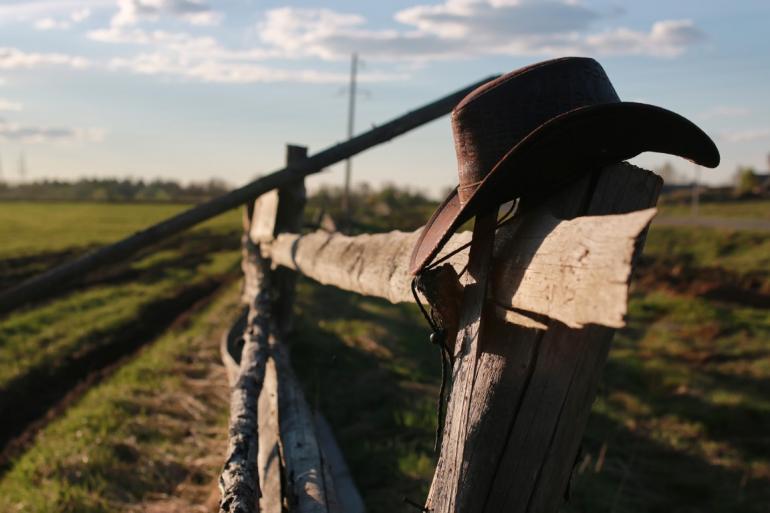
In 1977 my brother and I were the proud owners of the new (or at least new to us) ranch we named the "Wild Rose." It was a nice piece of property - 300 acres, give or take - about 25 miles downstream of Forsyth Montana, bordering the Yellowstone River.
The nearest town was Rosebud, about 10 miles upriver.
There is no way we could make our livings relying solely on the Wild Rose Ranch. Don't get me wrong, the piece of ground was ideal, consisting of 120 acres of laser leveled, flood irrigated, sandy loam soil, and another 200 acres of cow heaven down in the cottonwood bottoms along the banks of the river. But we still needed day jobs to make a go of it, so we worked for the railroad to support our ranching habit.
We were in the early stages of making improvements, going to all the farm auctions we could find for miles around. We had already drug home two tractors, one with a loader, a rollover plow, a roto harrow, a pull-type landplane, a seeder, a bailer, a two-ton truck, and even an old swather. Not long after, we added some hay feeders and a couple of pig feeders.
None of the above equipment was new. Point of fact, it had all seen better days, most of it looking pretty tired and old.
However, my brother could fix anything, and we had all of the above in fine working order, even if they were uglier than sin. The corrals, constructed out of old railroad ties, did their job too: they enclosed a given space. But they did have that look indicated by the term "farmer-rigged," in that they demonstrated a mastery of functionality as surely as they did a failure of aesthetics. What I'm trying to say is that the whole damn ranch, with the exception of the land itself, was pretty damn impoverished-looking.
At that time, the whole of Eastern Montana was in a boom cycle. Colstrip was on an upswing. Ironworkers, boilermakers, and tradesmen of all kinds were everywhere, employed from the big projects. The Burlington Northern Railroad, which employed us when we weren't working on our ranch, was booming. The Western Energy Company, the Peabody Coal Company, the Big Sky Coal Mine, and the Sarpy Creek Coal Mine all kept the tracks buzzing with coal traffic. Sugar Beets were being raised throughout the whole Yellowstone Valley and processed in Billings. The whole area was rich with the spoils of commerce. For our part, we weren't hurting, but then we had not yet reached that stage in our lives in which we had expensive tastes, either.
We had just about everything we needed. The only thing I remember being in short supply were young ladies our age. The unfortunate side effect of all those tradesmen being around was a surplus of testosterone, and on the weekends the local bars resembled the cantina scenes from "Star Wars." There were a whole mess of ugly, hulking, hairy brutes and very little femininity to balance it out. At the risk of sounding misogynist, barmaids who wouldn't have turned heads in the Bozeman's and Missoula's of the world attracted slavering followings east of Lewistown. Again, function superseded form.
But those noble women, brawny and brave enough to lay a coal miner flat, are not the subject of our tale.
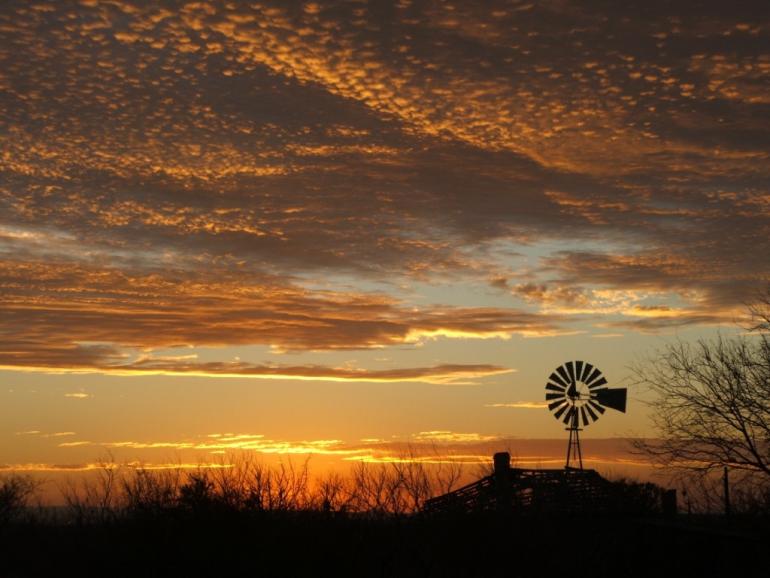
The outbuildings on the "Wild Rose Ranch" would have been embarrassing to anyone who was fashion conscious. The house itself was old, and probably better described as a shack. The roof didn't leak, the electrical wiring was ancient but only occasionally sparked a fire, and the pipes conveyed water and black sludge in nearly equal measure. We were not going to be featured in Better Homes and Gardens any time soon, but it sheltered us from the great, brooding thunderstorms that struck that summer, and that, along with a few swigs of whiskey, would start to make it look like a home after all.
We heated it with a wood stove whose chimney stuck out the top of the roof and was complete with rust stains and a nice offwhite coat of bird shit. It sort of resembled the place from "The Beverly Hillbillies." Before Jed struck oil, I mean.
Next, the eye was drawn to the machine shed. That is what we had taken to calling it, anyway. It was really a series of punctures, gashes, and leaks around which were arranged a loose amalgamation of tar paper and a few sheets of galvanized tin. It looked even worse than the shack of a house. Most of our recently acquired but undeniably old farm equipment was parked under the shed. The only parts that rusted were those parts exposed to the leaking roof and I'd say only 70 or 80% of the shed leaked.
The sturdiest building on the grounds was an old Milwaukee Railroad section house shack that we had purchased as the line was being abandoned. I think we paid something like 35 dollars for it, jacked it up and put a trailer under it, and hauled it home. Once home, we jacked it up again in order to pull the trailer out from under it. Then, thinking ourselves very clever, we left it a few feet up in the air on the railroad ties, as it was precisely high enough to back a pickup to it and roll a 30-gallon barrel of fuel out of the pickup and into the doorway. As a matter of fact, it did not have a door, and so we stored our ranch fuel, grease and oil inside. The last time a door hung in its precarious entryway was probably around the time of Noah and the flood, if not before.
While working on the old swather, we used about two tubes of grease each time. There was a heavy double chain apparatus - I think they call it a conditioner - that the fresh-cut hay went through, and the idea was that it (the hay) would dry down faster if conditioned. This aggravating contraption had to be oiled on the fly, which threw slick black crude all over the place, and so on this particular day, we had dressed accordingly in our rattiest fineries. We were covered in oil, covered in patches, and covered in grease.
My brother had old dirty coveralls on, topped by a straw hat that had seen better days and, if it weren't for the splotches of oil holding it together, might have unraveled in a breeze. Being a hot day, he had only a tee on under the coveralls.
I had on an ancient faded yellow ripstop nylon jacket with several reinforcing layers of duct tape under the armpits situated, not coincidentally, at fence repair height across the chest. I was a master in the use of duct tape, and John Deer sold a particularly robust variety; a discerning customer might choose one to make his preferred fashion statement.
When I think about it, in unguarded moments of nostalgia, my whole past seems held together with duct tape.
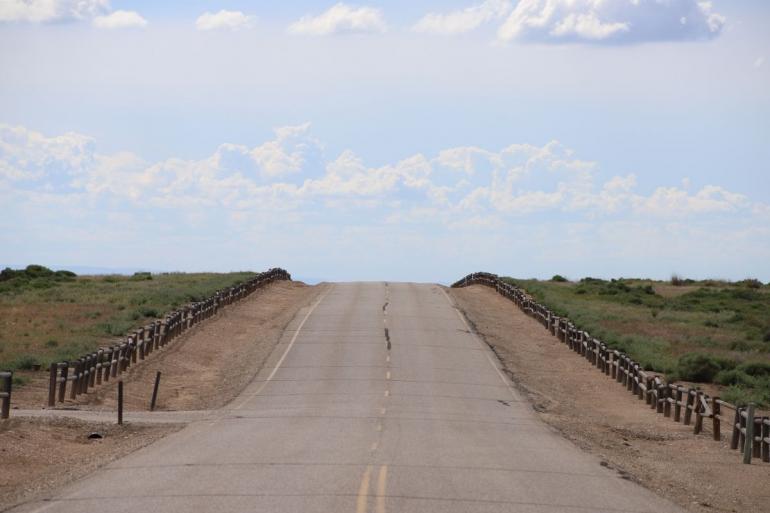
On my head was a baseball cap worn at a slight cocked angle that I thought looked jaunty, if not dashing. My pants were stained old khaki dress pants, garage sale vintage. I wouldn't have worn them to a dog fight, lest the dogs get offended.
But we were fashionable enough for swather repair. And since we were 25 miles away from the nearest town, which barely rated as a town in the first place, I figured that no one would see us. My brother and I figured it didn't matter much what we wore; we could stand to look at each other as long as we didn't look long.
Of course, somewhere in all that scrub and brush were a couple of nice Harleys, and not far away were two new pickups, the only objects on the "Wild Rose," including us, that could have been considered pretty. As such, we'd hidden them carefully away.
But wouldn't you know it? A big puff of road dust announced the approach of a station wagon. This being the 1970s, the car was full of the adherents of some un-named religious group. We never did figure what denomination of Christian faith they professed, and they didn't volunteer the information, but you could tell they were born-agains because they looked like the Manson family, only with new shoes and shorter hair. They drove into our yard, got out, and introduced themselves. We gave them our friendliest nod.
They looked around at the place and sized us up. They said they were selling fruit as a means to support their ministry.
What kind of fruit, I enquired, and they said apples and pears. I asked, were the apples tart? I favored tart apples then and now. They indicated that they were indeed. A young man retrieved a box out of the back of their station wagon and placed it on the ground near the swather.
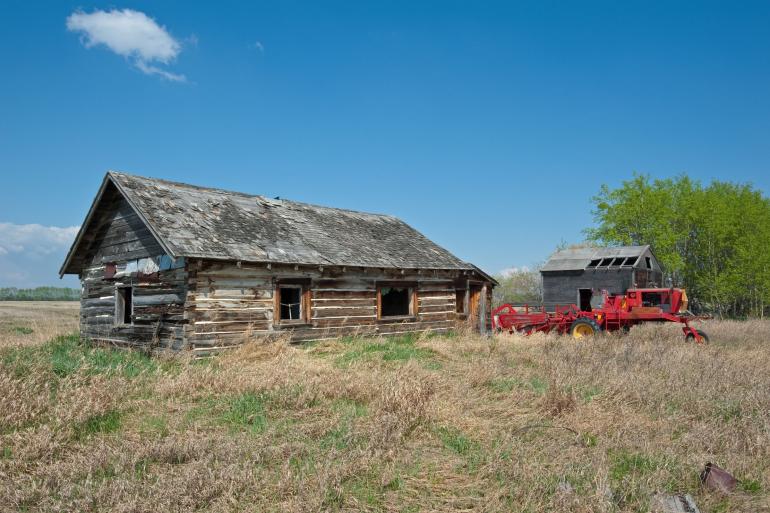
Then the strangest thing happened. The matriarch of the group, attired in a powder-blue pants suit, her straw-colored hair drew up in a harsh bun, asked if we were saved, to which I responded in the affirmative. We reckoned we were, more or less. At least we weren't in any immediate peril, it being a Wednesday.
She, in turn, responded, "could we pray?"
To which I said, a little nervously, "yeah, sure, why not?"
She said, "let us join hands."
We rubbed our grubby, oily paws on our adornments so as not to offend such lovely people and formed a circle. I noticed that the young lady, upwind and to my left, smelled rather pretty, or at least her perfume did.
The older lady then said, "Dear heavenly Father, please look with love on these hardworking young men. Lord, I didn't know that such extreme poverty existed in this great country of yours. Please bless us all here today, but most especially these young men, and lift them up out of these wretched conditions, up out of this abject deprivation. Amen."
Then they got in the station wagon and drove off, leaving the fruit without asking for payment. We watched them in slack-jawed silence until the dust kicked up by their station wagon had settled back onto the road.
My brother turned to me and said, "what just happened?"
I said, "I think they felt sorry for our miserable condition and concluded we were too poor to buy the apples."
My brother looked at me and said, "get rid of that damn jacket. We look like we walked outta 'The Grapes of Wrath'."
I laughed as I took it off and dropped it in the burn barrel. I said, "You should probably get rid of those coveralls too. And maybe we ought to plant some flowers around here or something."
I reached into the box and pulled out an apple, and so did he. We bit into them. They were indeed tart and did an admirable job of cutting the dust. I spat out a seed and looked back to the road, where the car was now just a speck on the horizon. I reflected, silently, that they seemed like mighty friendly folks. A hint of the young girl's perfume still hung in the air.
"Well, hell, I hope God blesses them, too," I said and went back to work.
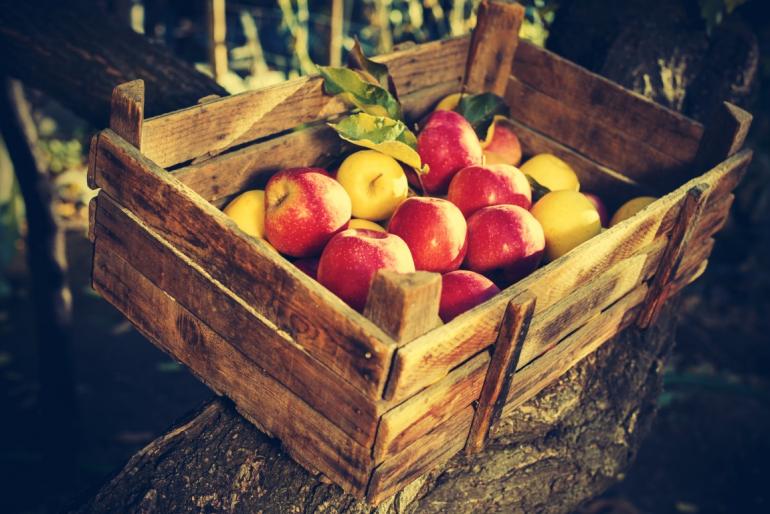
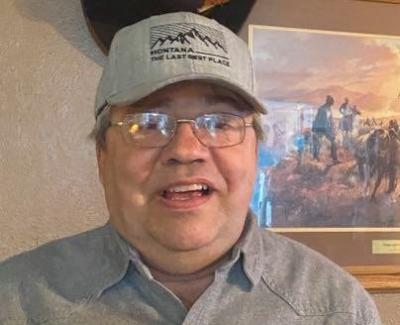
Gary Shelton was born in Lewistown in 1951 and has been a rancher, a railroader, a biker, a teacher, a hippie, and a cowboy. Now he's trying his hand at writing in the earnest hope that he'll make enough at it to make a downpayment on an RV. Hell, scratch that. Enough to buy the whole RV. He can be reached at [email protected] for complaints, criticisms, and recriminations. Compliments can be sent to the same place, but we request you don't send them - it'll make his head big.
Leave a Comment Here
I'm the same age as you, and live in Spokane , retired and having heard of this winter ( similar to 1978/1979 )
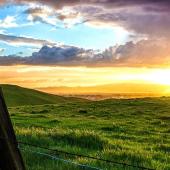

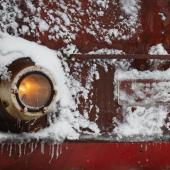

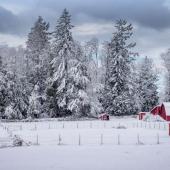

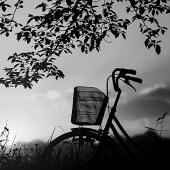

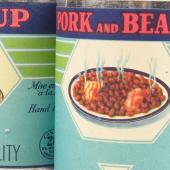
- Reply
Permalink